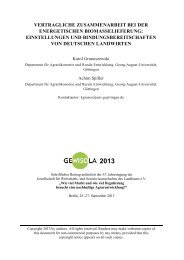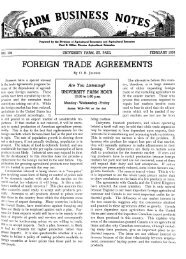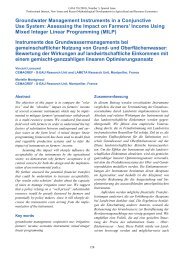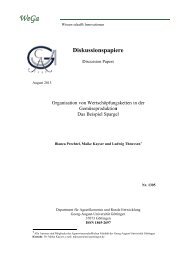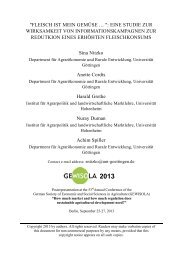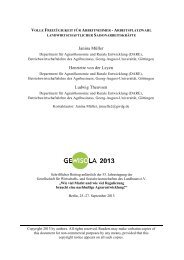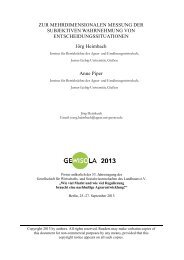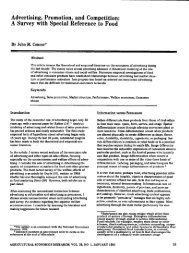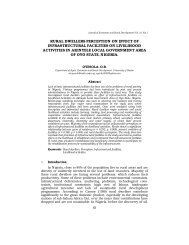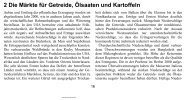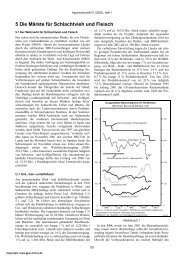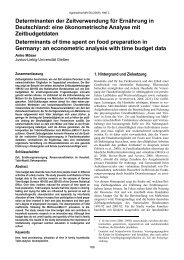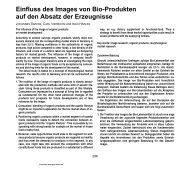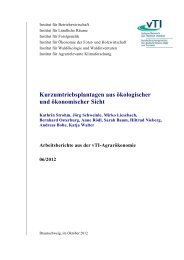District Institutes of Education and Training - Teacher Education
District Institutes of Education and Training - Teacher Education
District Institutes of Education and Training - Teacher Education
You also want an ePaper? Increase the reach of your titles
YUMPU automatically turns print PDFs into web optimized ePapers that Google loves.
<strong>District</strong> <strong>Institutes</strong> <strong>of</strong> <strong>Education</strong> <strong>and</strong> <strong>Training</strong>: A Comparative Study in Three Indian States<br />
had come into teaching with positive intentions seemed defeated by the training<br />
itself before they had even begun to work in schools. Others did not engage with<br />
the quality <strong>of</strong> the training, since their expectation was simply to accrue enough<br />
point to license them to do what they saw other teachers doing:<br />
The teachers in village primary schools just go <strong>and</strong> sit there for the whole day<br />
<strong>and</strong> go back. We will also be doing the same (RAJ/UDR 1st yr st.)<br />
In this job there is less tension <strong>and</strong> work. In <strong>of</strong>fices, you have to sit <strong>and</strong> work<br />
for the whole day (RAJ/UDR 2nd yr st).<br />
In Surat DIET, where the training experience was more lively <strong>and</strong> integrated with<br />
school, student teachers shared many <strong>of</strong> the concerns about managing to assert a<br />
new teaching approach in existing contexts. In this DIET, there was a much<br />
stronger feeling among students that the students had been inspired by their<br />
trainers to try, <strong>and</strong> to underst<strong>and</strong> that they could make a difference. In the longer<br />
term, since Surat DIET was well integrated into the <strong>District</strong>, there was also a<br />
likelihood <strong>of</strong> remaining in touch with the DIET, <strong>and</strong> so <strong>of</strong> sustaining some <strong>of</strong> that<br />
momentum through continued contact with their lecturers.<br />
4.3 Summary<br />
The accounts in this chapter illustrates many <strong>of</strong> the factors that create the gap<br />
between processes <strong>of</strong> pre-service training <strong>and</strong> required capacities <strong>of</strong> teachers.<br />
Trainers may lecture about a range <strong>of</strong> methods, but their preference for lecturing<br />
<strong>and</strong> reluctance to model a more dynamic <strong>and</strong> active teacher image sends out an<br />
unarticulated message that teaching can also be done in the usual way. Theory <strong>and</strong><br />
practice are polar opposites, rather than integrated with a view to blending content<br />
<strong>and</strong> pedagogy in pursuit <strong>of</strong> children’s learning. <strong>Training</strong> is dominated by content<br />
concerns, is weak in skills development, <strong>and</strong> does not begin to explore student<br />
teachers’ attitudes <strong>and</strong> values. Practice teaching concentrates on the delivery <strong>of</strong><br />
decontextualised model lessons according to a lesson plan that must be adhered to<br />
if points are not to be lost. <strong>Teacher</strong> training is approached as if it were secondary<br />
schooling, with a strong focus on content <strong>and</strong> a weak focus on pedagogical <strong>and</strong><br />
community-related issues, rather than a course in pr<strong>of</strong>essional development: any<br />
focus on learning by student teachers is orientated towards gaining marks.<br />
<strong>Training</strong> <strong>of</strong> this nature reinforces rather than dispels the view that pre-service<br />
training ‘has no practical use. It is useful theoretically. We only do it to get good<br />
marks’ (RAJ/UDR 2nd yr. st). It is an example <strong>of</strong> an approach to education that<br />
Paolo Freire describes as ‘banking’, where deposits <strong>of</strong> ‘knowledge’ are accumulated<br />
without much regard to context <strong>and</strong> relevance. The currency <strong>of</strong> those deposits is<br />
not the currency that is required for school work. It also reflects a view <strong>of</strong> student<br />
teachers as empty vessels. Yet as these accounts show, these vessels bring to their<br />
90 DFID



